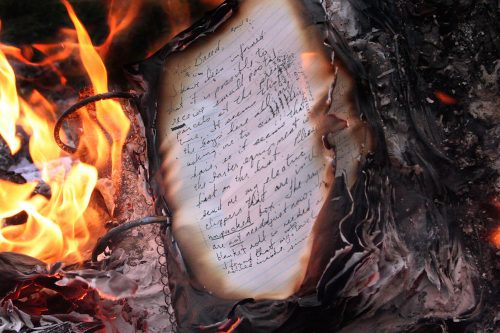Of all the roles in the publishing world, developmental editing (DE) is easily the most difficult, the most complicated, and the most satisfying. Developmental editing is not simply editing; it requires the artistic abilities of a writer, the keen eyes of a reader, and a passionate, zealous love for storytelling. Oh, and the tact and civility of a diplomat.
Developmental editing is all about the narrative, which is why it’s my passion. Unlike copyediting, which is governed by style guides (no thanks) and grammar rules (yuck), developmental editing relies more on an editor’s sense of what works and what doesn’t. There’s a near-endless list of things to examine, critique, and fix. For example, for any given manuscript, an editor will analyze the characters, setting, dialogue, events, action, subplots, and the narrative itself as whole. Every piece of the narrative is deconstructed and analyzed for faults.
This is no small undertaking. There are no rules for how to approach a developmental edit. A set of what be described as best practices governs our editors. While DE can often be overwhelming, the lack of guidelines is part of what makes it so enjoyable. Even in the same genre, two manuscripts can require radically different approaches. Developmental editors must be flexible, and they have to approach each manuscript as a unique challenge.
The author is also part of this challenge. In copyediting, editors can use dictionaries, style guides, and grammar guides to support their editorial choices. Developmental editors don’t have these luxuries.
Let’s say a developmental editor notices that a specific character is underdeveloped. The DE might suggest providing more backstory or giving the character more action. These suggestions are fairly easy for authors to digest because the editor is implying with their suggestion that the character has value. Despite the character’s flaws, they still provide some value to the overall narrative. There’s still hope.
However, things get complicated when a DE suggests killing off a major character, reframing the plot, or changing the narrative’s entire focus. There are no implications here; the suggestion explicitly tells the author that this aspect of the narrative is so severely flawed that it negatively impacts the author’s storytelling abilities. In books that are well written and well edited, readers rarely see these problems, and that’s because the developmental editing process often reveals narrative-breaking issues.
Once an editor has identified such a problem, they have to develop solutions and find a way to gently present that information to the author. It’s a delicate dance that balances the harsh reality of the situation with the author’s feelings and desires for their narrative. It requires solid evidence, a convincing argument, and all the tact an editor can muster.
To further explain why developmental editors are drawn to their work, I asked a few of my fellow editors to share their insights:
Alison Cantrell: For me, editing is an intermediary between the writer and the reader. I’m very much a behind-the-scenes kind of person, and developmental editing allows me to do this kind of work while still making a meaningful impact. My role as a developmental editor may be “invisible,” but I still find it satisfying to know I’ve both helped the writer succeed in making their piece the best it can be and took part in crafting a wonderful reading experience for those who will eventually pick up the book.
Lisa Hein: My job as a developmental editor is to enter the project with a fresh eye, identify the true core of the story, and guide the author toward the best possible version of that manuscript. Since I’ve been on the artist side myself, I understand that everyone has a different creative process; I enjoy the challenge of discerning how to cater my tone to an author’s personality and unique working style. With that said, the simple answer to why developmental editing is close to my heart boils down to this: I love stories.
Developmental editors get to tinker with literary Lego, develop complex relationships with authors, and directly impact the narrative’s creation and final result. Every project is a unique challenge with unique rewards, and there’s simply nothing else quite like it.

